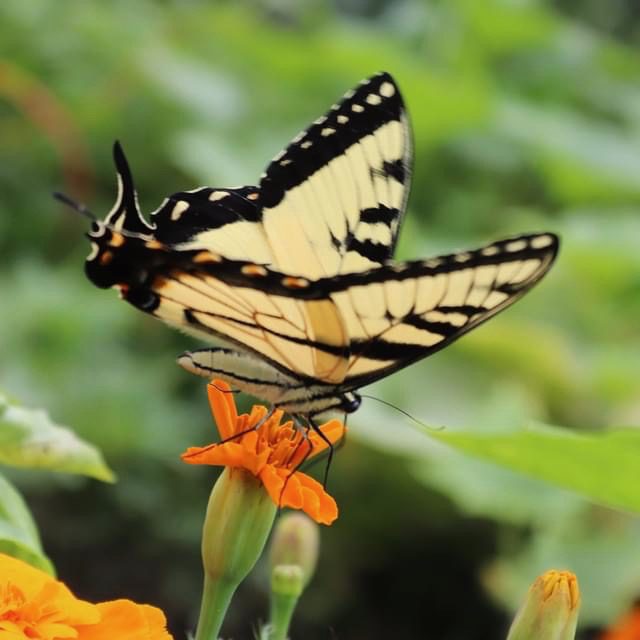
Photo credit: Pat Pawlak
Did you know that 1/3 of our food is dependent on pollinators which are threatened by climate change? The three main pollinators are butterflies, bees, and bats. Without them fruit, vegetables, and fodder would not be pollinated. Fodder is feed for animals so even the pork and chicken you eat is dependent on pollinators. Without pollinators our major food supplies would decline dramatically. According to the FDA, the most susceptible foods would be apples, melons, cranberries, pumpkins, squash, broccoli. Michigan produces many of these crops.
How does climate play into the decline of pollinators? The effect of drought is obvious. What is not so obvious is how warmer temperatures affect growing cycles. For example, warmer weather causes flowers to bloom sooner and before the butterflies have laid their eggs. Consequently, the butterflies will not have food as the flowers are past blooming. This dyssynchronous cycle greatly impacts the insect’s life cycle, reproduction and survival. This results in a downward cycle of pollinators not reproducing and plants not being pollinated. This vicious cycle could result in the extinction the Monarch butterflies. Honeybees have had a significant decline since 2006.
The decline in pollinators is not only due to climate change but also due to human activity such as the use of pesticides, habitat destruction, introduction of invasive species, light pollution, and air pollution. Fireflies are confused by light pollution and their confusion prevents mating. Did you know that air pollutants bind to plant “perfume”? When that happens, pollinators are no longer able to identify plants and do their job as pollinators.
What are the consequences? First, farming is a major industry in Michigan with over 50 thousand farms producing over 300 products resulting in over $1billion dollar economic impact. 22% of Michigan’s workforce is farm related. Second, Michigan’s nutrition and health are dependent on these pollinated crops. Third, without pollinators Michigan’s natural ecosystems will no longer be healthy. Clearly, pollinators are key to the economic, nutritional, and environmental health of our beautiful state.
What can we do to stop pollinator decline? Plant pollinator supportive lawns, gardens, and trees. We can also support the establishment of native pollinator habitat. It is very important to decrease pesticide use. The MSU reference below has some very helpful information to help you reach these goals. Decrease light pollution. Remember those fireflies! Do not blow away those leaves or clean your gardens until those “sleeping” pollinators have had a chance to hatch in the spring.
References:

 Western Hills Garden at KGC House
Western Hills Garden at KGC House